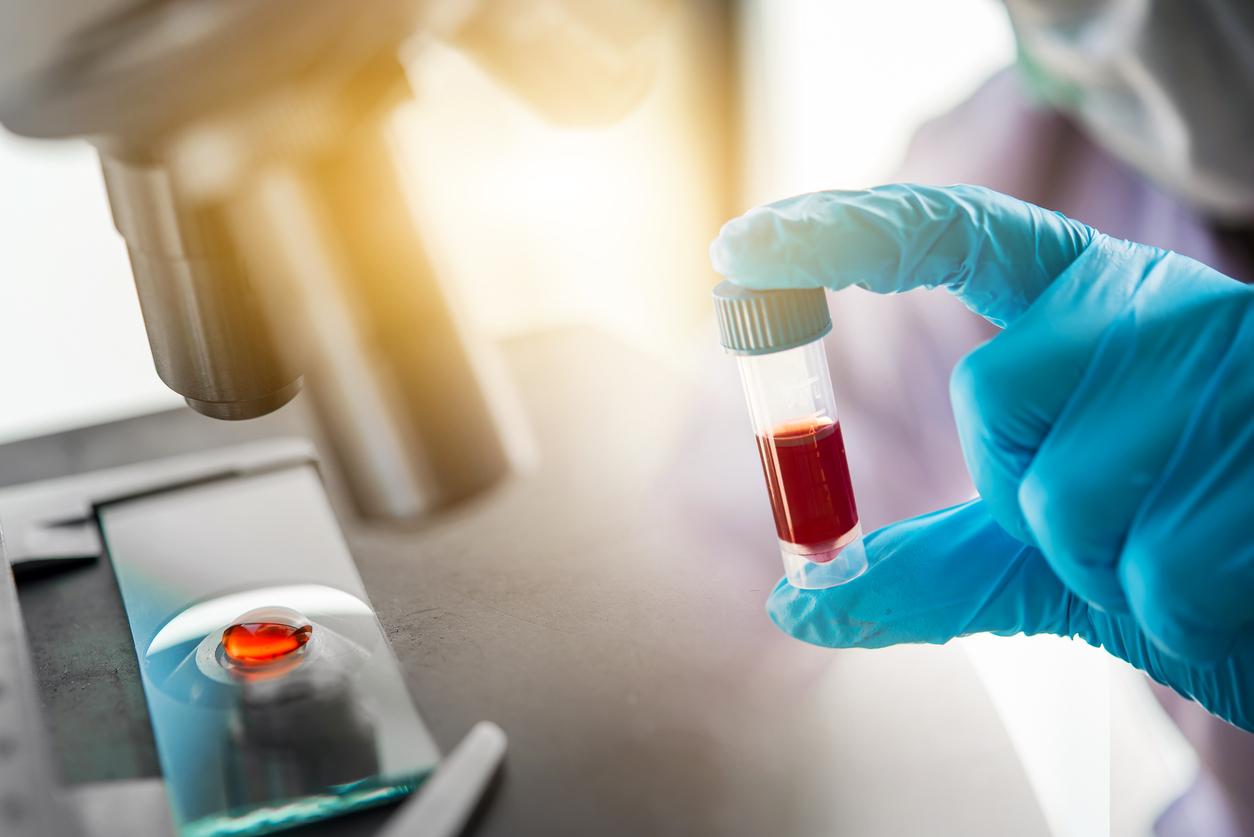Researchers have developed a new blood test that can reliably detect Alzheimer’s-type dementia early.

- Improving the diagnosis of Alzheimer’s disease allows patients to be treated early and thus slow the progression of symptoms. Researchers have achieved the feat, thanks to a new blood test, of detecting the disease with an accuracy of 91%.
- The new blood test is based on two typical biomarkers of Alzheimer’s disease: plasma phosphorylated tau 217 protein and the amyloid 42/40 ratio.
- The blood test, “more efficient, more cost-effective and more practical” for the patient, could “potentially replace” the reference method for making the diagnosis, namely the puncture of the cerebrospinal fluid and positron emission tomography (PET).
Improving the diagnosis of dementia, starting with Alzheimer’s disease, allows patients to be treated early and thus slow the progression of symptoms. While neurologists and cognitive decline specialists only correctly diagnose it “in 61 to 73% of cases”a team of scientists has achieved the feat, thanks to a new blood test, of detecting the disease with a precision never before equaled. Their work, presented at the annual congress of the Alzheimer’s Association, in the United States, was published in the journal JAMA Network.
Targeting two typical biomarkers of Alzheimer’s disease
For their study, researchers from Lund University in Sweden recruited a cohort of 1,213 people with an average age of 74 and subjected them to cognitive tests. Of these, 23% had subjective cognitive decline, 44% had mild cognitive impairment and 33% had dementia.
Each participant also had a blood sample drawn to perform the new blood test, which is based on two typical biomarkers of Alzheimer’s disease: plasma phosphorylated tau 217 (or p-tau 217), which tends to aggregate abnormally in the brains of patients; and the amyloid 42/40 ratio, which measures the levels of two types of amyloid proteins that accumulate as plaques in the brain.
Blood test that detects dementia
The new blood test combining these two Alzheimer’s markers allowed researchers to detect the disease with 91% accuracy, as was later confirmed by the results of a cerebrospinal fluid puncture combined with a positron emission tomography (PET) scan – the gold standard for diagnosis (apart from autopsy). While both tests are expensive and invasive, the blood test, “more efficient, more profitable and more practical” for the patient, could, “potentially replace them”assures Professor Sebastian Palmqvist, lead author of the study, in a communicated.
“Next steps include establishing clear clinical guidelines for the use of blood testing in health care, estimates the specialist. The test is already available in the United States and will likely be available in many other countries soon. Initially, it will be used primarily in memory clinics, and it may take about one to two years to implement the guidelines and training in primary care.” In short, the blood test could soon appear at your doctor’s office.
















